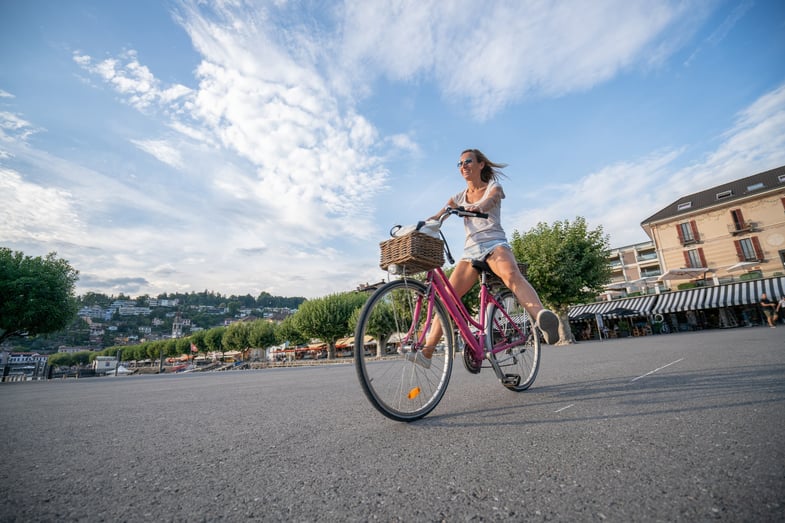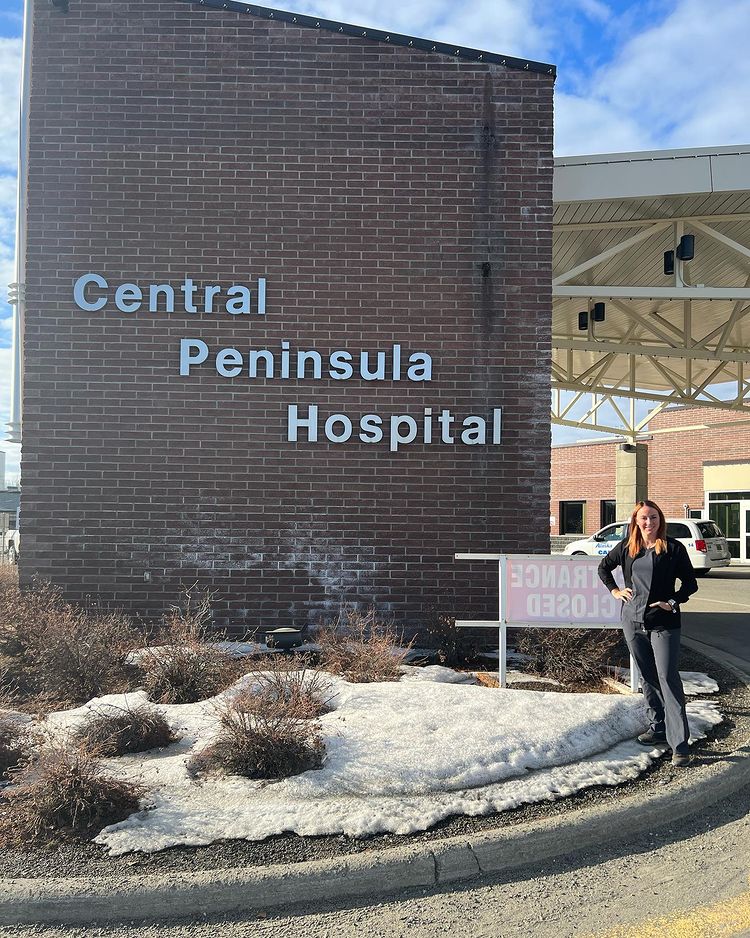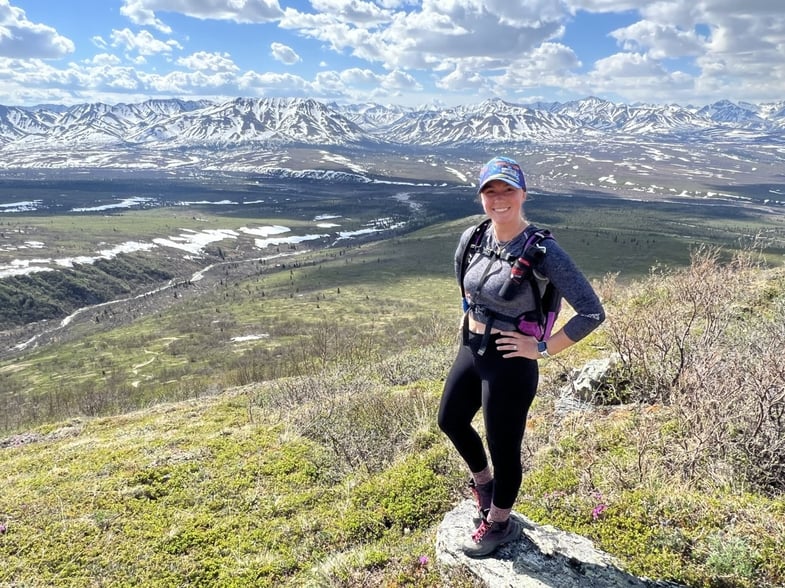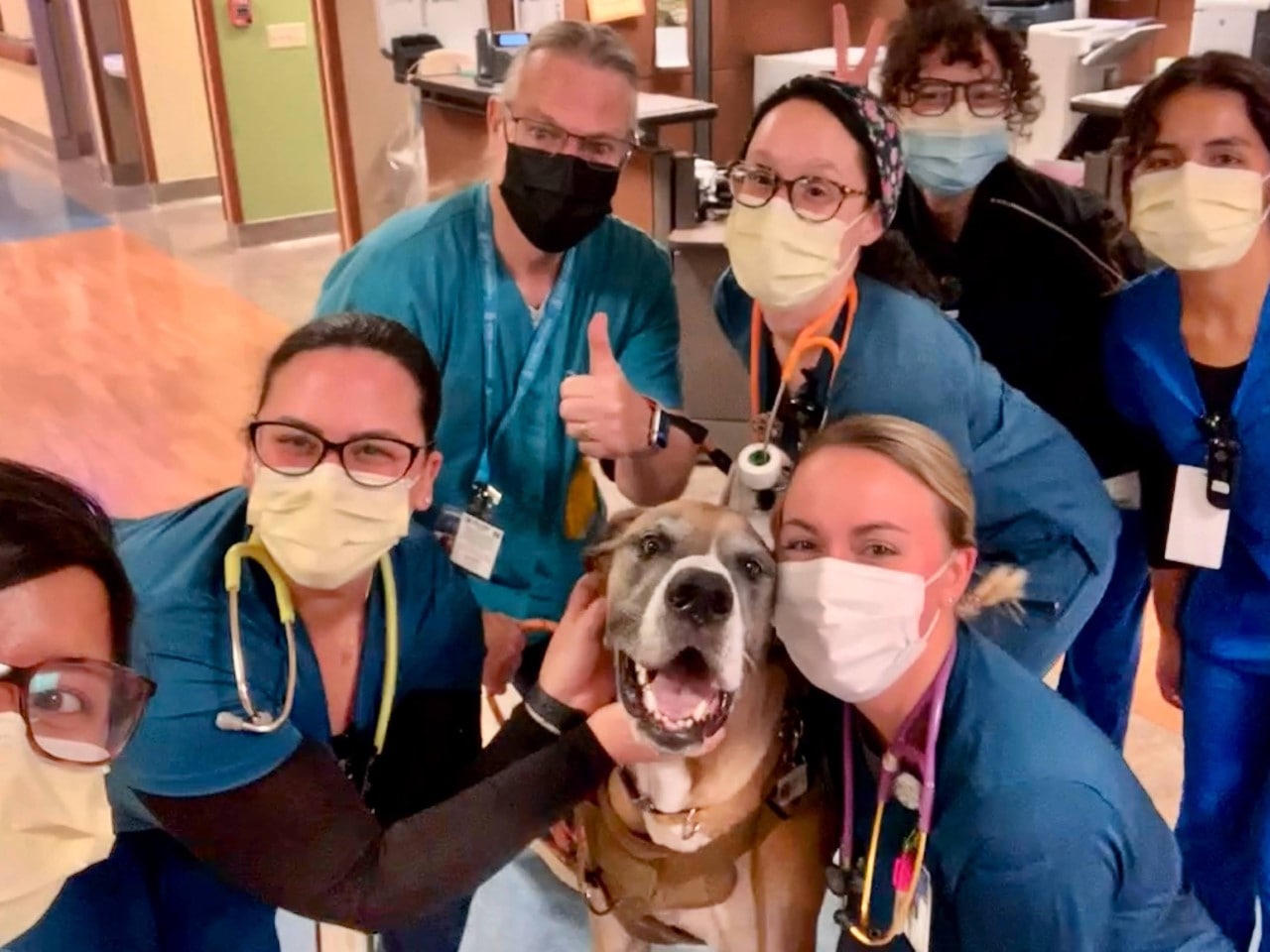 It’s no secret that the U.S. is and has been facing a critical shortage in nurses, as well as various medical professionals for decades. While nearly every state in the nation has felt or still feels the effects brought on by the nursing shortage, rural areas tend to feel it even harder. In fact, according to the Association of American Medical Colleges (AAMC), out of the more than 7,200 federally designated medical professional shortage areas, 3 out of 5 (60%) are in rural areas of the country.
It’s no secret that the U.S. is and has been facing a critical shortage in nurses, as well as various medical professionals for decades. While nearly every state in the nation has felt or still feels the effects brought on by the nursing shortage, rural areas tend to feel it even harder. In fact, according to the Association of American Medical Colleges (AAMC), out of the more than 7,200 federally designated medical professional shortage areas, 3 out of 5 (60%) are in rural areas of the country.
The Ins and Outs of Rural Health Care with Travel Nurse, Jess Stacho, RN, BSN, CCRN
Now, when you think of rural living, you may think of a never-ending sea of cornfields. And while that image may not be too far off in some regions of the U.S., rural communities have much more to offer, especially if you just so happen to be a trained medical professional. Oh wait, you are!
To get a better idea of what rural health care ~actually~ looks like, we recruited an expert, travel nurse, Jess Stacho. Living in rural Alaska, Jess knows what it means (and what it takes) to be a medical professional in a small town. Interested in learning more? Please, carry on.
The 4-1-1 on rural health care
 Before we can fully immerse ourselves in what is rural health care, let’s touch on what, specifically, is a rural area. If you asked National Geographic, which we did, what a rural area is, you’d see this result:
Before we can fully immerse ourselves in what is rural health care, let’s touch on what, specifically, is a rural area. If you asked National Geographic, which we did, what a rural area is, you’d see this result:
“A rural area is an open swath of land that has few homes or other buildings, and not very many people. A rural area population density is very low. Many people live in a city, or urban area. Their homes and businesses are located very close to one another. In a rural area, there are fewer people, and their homes and businesses are located far away from one another.”
Believe it or not, but throughout the globe, more people live in rural areas than in urban areas. In the U.S. alone, more than 20% of the country resides in a rural community. And when you think about it, it makes sense.
I mean, haven’t you ever wanted to escape the never-ending buzz of city life? I know I have. Not only are rural communities typically quieter and more peaceful, but these areas also allow for more opportunities to make friends and build connections, plus present more opportunities for professional growth and career advancements, especially for those in the medical industry.
“In a small community, you get to know patients in the context of their community and their families,” said Susan Anderson, MD, and dean of rural medicine at the University of South Dakota Sanford School of Medicine. “You take care of the whole family and in some cases, multiple generations of families. Birth, death, trauma, you see your patients through it all. There’s a continuity of care and a kind of gratification that’s very hard to find in any other kind of practice.”
Q&A with travel nurse, Jess Stacho, RN, BSN, CCRN
 What better way to learn the ins and outs of rural health care than to ask a true expert? So, that’s exactly what we did! Fusion traveler, Jess Stacho, RN, BSN, CCRN, sat down with us from Alaska to share her adventure in rural communities.
What better way to learn the ins and outs of rural health care than to ask a true expert? So, that’s exactly what we did! Fusion traveler, Jess Stacho, RN, BSN, CCRN, sat down with us from Alaska to share her adventure in rural communities.
Megan Bebout: Hi Jess! Thank you so much for being here with us. We’re excited to hear more about your travel journey! To get us started, can you share what inspired you to start travel nursing?
Jess Stacho: Hello, yes, thank you for having me! So, travel nursing started as a compromise and turned into the BEST adventure I could ask for. I’ve always been more of a homebody, and my husband has always wanted to move away from home (Ohio), so as a compromise we decided to travel after we got married and move back when we were ready. We didn’t even know if I’d last one 13-week assignment, but here we are three years later still traveling!
My passion for travel nursing has evolved and the affinity to learn and help many people of various cultures in our own backyard has exploded! Nursing changes with each and every city we travel to, and I believe this is one of the many reasons that makes me want to keep exploring!
MB: Wow! I love that you were willing to compromise with your husband on something so major. And what a happy surprise that it turned into the greatest experience! You, your husband, and dog travel by RV, right? What inspired that decision?
JS: Well, after a few assignments of finding housing on our own and renting, I accepted a position in rural Oregon. The town only had a population of 1,600 and there was little-to-no housing available to rent with my husband and our pup. We had been talking about getting an RV in the ~future~ … little did we know that future was the next week! We looked for and purchased our travel trailer home all within one weekend.
Travel nursing has definitely taught me to roll with the punches! It’s so much easier to find a campsite and bring our home and all our belongings with us wherever we go. Plus, there’s less time adjusting for our pup! My number one requirement for our RV was having a full-length door (rather than a pocket or half door). Since I work night shifts, this was the best way to ensure I would have a mostly quiet sleep during the day while my husband worked in the main living area.
MB: That makes sense. I bet your pup loves not re-adjusting with each assignment. Heck, I’m sure you and your hubby do, too! Out of all the places you’ve traveled to so far, what’s been your favorite place?
JS: My favorite place I’ve traveled to so far is Alaska. I have been manifesting living and truly experiencing Alaska for years! To most, living in Alaska seems far-fetched, but my husband and I were determined to make it work! After striking out on landing my perfect assignment last summer, my persistence paid off and I’m finally living and working on the Kenai Peninsula. I truly enjoy the diversity that Alaska has to offer and the small-town hospital I work at. There are so many opportunities to get outdoors and go hiking, dog sledding, fishing, aurora chasing, glacier flightseeing, and so much more that is unique to Alaska!
MB: That’s incredible! You’ve convinced me, I’m adding Alaska to the bucket list. Now, you mentioned living and working in a small town. What was the transition like going from big hospitals to smaller, rural facilities?
JS: The transition from big city hospitals to smaller community facilities was quite eye-opening. I was truly humbled to work with staff that treated each one of their patients like their neighbor, because most of the time they were! Taking care of the community and promoting its health and wellness is so important to them. Because these towns were small, oftentimes they were treated by the same physician(s) throughout their lifespan giving healthcare a holistic and personal approach.
On the other hand, smaller facilities and towns often have fewer resources compared to larger ones. This taught me to be more adaptable than ever! I learned so much from my coworkers as we worked as a team to provide quality care for our patients without the luxuries bigger hospitals offer.
MB: I can imagine it would’ve taken an adjustment period to get settled in a smaller facility. We’ve heard a lot about the demand for medical professionals in rural areas. In your opinion, would you say there is a higher demand for nurses, therapists, and other medical professionals in smaller communities?
JS: Yes and no! There is definitely a higher demand for permanent staff in rural areas who are willing to live and work in the area year-round. As for travelers, in very remote areas there is a large need. I believe this is due to many factors such as lack of housing, lack of access to big city amenities, and destination-related activities that might appeal to the traveling professional.
On the other hand, rural cities in destination cities and states, such as Alaska in the summertime, see an influx of healthcare professionals wanting to work in the area due to desirable climate and things to do.
-min.jpg?width=960&name=thumbnail_image3%20(1)-min.jpg)
MB: That makes sense! Having worked in both city hospitals and rural medical facilities, what would you say are the perks and challenges of working in a rural setting?
JS: One of the biggest perks to working in a rural hospital is being able to immerse yourself in the community and culture. I feel that in a small town, they are more than just “another patient” or “the one in room 6.” The patients are family, neighbors, friends, the clerk at the town’s ONE and only grocery store, etc. It’s pretty amazing to know that you and your coworkers are actively impacting the community and see it right before your eyes.
A big challenge of working in a rural hospital is not having the resources to provide the level of care you want to give. For example, it may be frustrating to use old equipment that has been fixed multiple times or maybe is broken and the only one in the entire facility. It may be frustrating to know that your patient needs a heart catheterization, and the helicopter won’t be able to fly them to a facility with a cath lab for an hour. It may be frustrating to have to draw your own labs, call a remote pharmacy, or administer respiratory treatments because the hospital may not have these staff members working 24/7 like larger facilities do. To me, these frustrations do not outweigh the amazing experiences I’ve had learning and adapting to have a hand in helping a small community.
MB: Right on. Thank you for sharing! What is your favorite thing about working in smaller facilities?
JS: I love working in smaller facilities and towns and transforming into a local! The staff always has the best insider info to help me truly experience their town how they do each and every day. I love trying new foods, learning about new cultures, and exploring the local hikes and swimming holes!
Working in smaller facilities has also helped me grow as a nurse. At the 10-bed, one floor hospital I worked at, I had the opportunity to help out in other areas such as the emergency room (ER) and labor and delivery (L&D). On each shift, there were only three nurses on duty, so we worked as a team to provide care to all of the patients, even if we were assigned to only one department. Those experiences were so valuable to me because I was able to learn about specialties I would rarely come in contact with in a big hospital.
MB: That said, why would you recommend working a travel nursing job in a rural are?
JS: I would recommend travel nursing at a rural hospital for the experience! If you’re used to working in big cities, a rural hospital may challenge you and help you grow as a nurse more than you ever thought! You will also get to experience a simpler way of living without the commitment and hustle and bustle of the city. For example, I had a two-minute drive to work—no traffic, no parking garages, no elevators, no fuss! I was able to come to work and see the same faces I saw on a weekly basis. The entire hospital staff knew me by name and thanked me for coming to their community to help them out! You will be humbled and pushed to experience the unexpected, and hey, you may even discover a new passion within!
MB: What advice would you offer someone who’s beginning their first rural nursing job?
JS: My advice to someone starting their first rural nursing job would be to prepare! Do your research in advance so there are as little surprises as possible once you get there. Oftentimes in rural towns luxuries such as Walmart or clothing shops are hours away, so for packing purposes, this will help you prepare so that you’re comfortable.
I also like to compile a list of adventures I’d want to go on so I can talk to the locals and get the inside scoop on safety and tips! Another important aspect of your research should be housing. Most rural hospitals can give you a list of available stays or hotels that travelers stay at when they come to work.
MB: That’s great insight! Lastly, if you could go back in time, what advice would you give your younger self when you were just starting your nursing career?
JS: Great question! Reflecting back on my travel nursing career I was such a worrier! I worried about what the job would be like, would I make friends, would I miss home, etc. Now, I would tell myself, “Worrying is suffering twice.”
Rather than worrying, try to focus on the excitement of exploring a new city, being immersed in a new culture, learning new skills, eating new foods, traveling new ground. It’s an amazing world out here—right in our own backyard. You got this! -min.jpg?width=960&name=thumbnail_image0%20(1)-min.jpg)
MB: Thank you so much for sharing your experiences and expertise with us, Jess! We so appreciate you and everything you do!
JS: Of course! Thanks again for having me.
Living and working in a rural community may not be everyone’s vibe, but how do you know for sure if you don’t give it a go? Let Jess’s experience inspire and guide you to see what’s out there in rural America. You may be pleasantly surprised to learn there are many benefits and career opportunities waiting for you!
View this profile on InstagramADVENTURE•COUPLE (@adventures.of.j.and.a) • Instagram photos and videos





